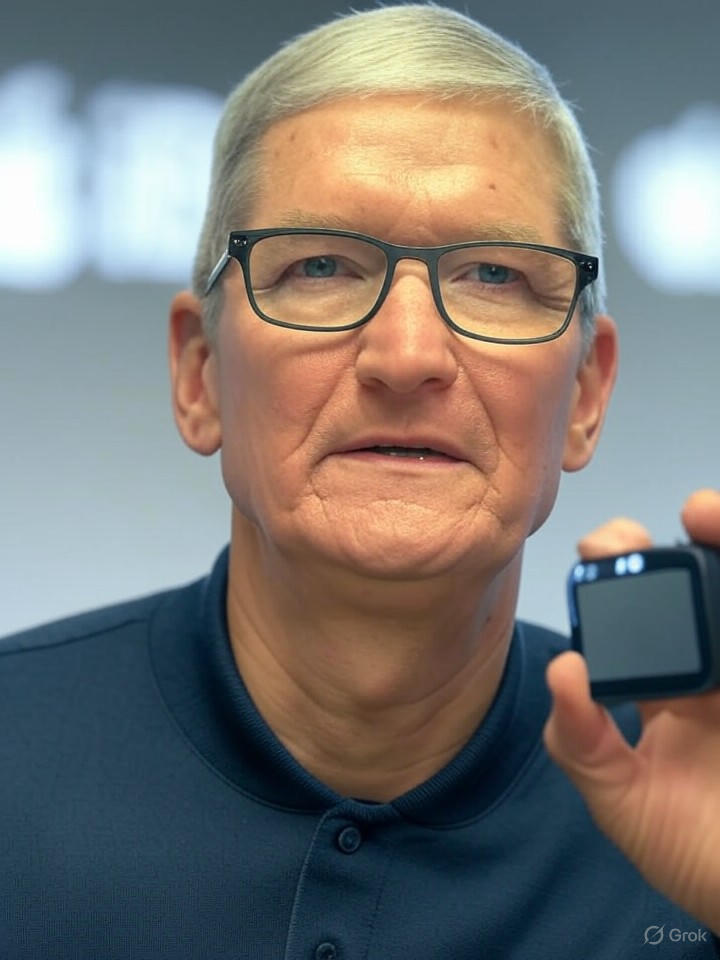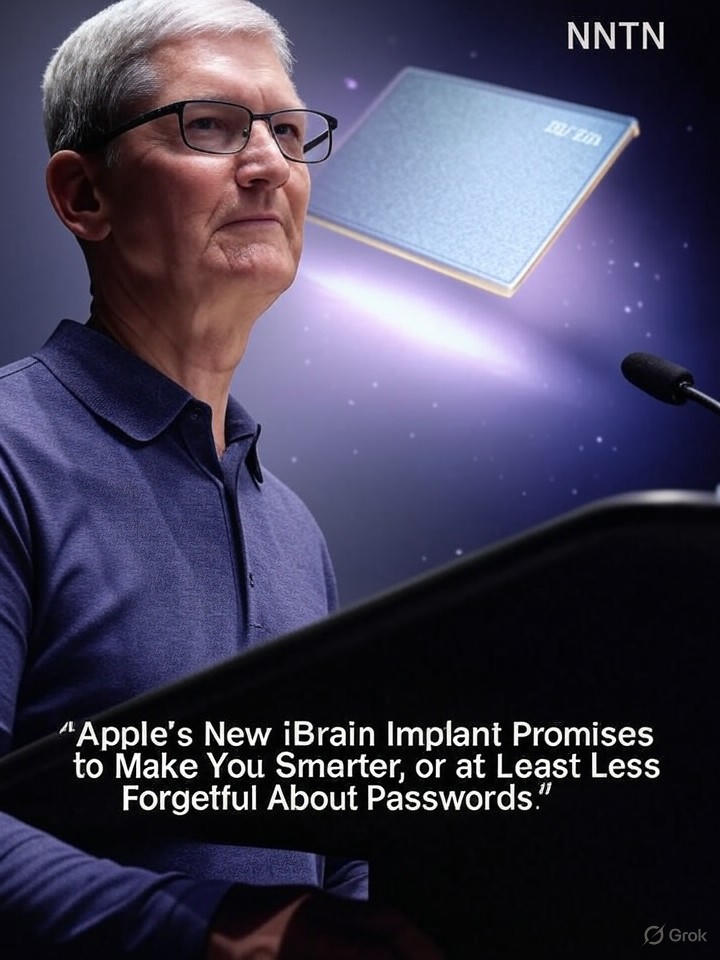CUPERTINO, CA – In a keynote that had tech enthusiasts drooling more than a toddler with a new iPad, Apple CEO Tim Cook announced the iBrain, a revolutionary neural implant designed to boost your IQ by at least 10 points – or your money back, minus the surgical fees. 'It's not just a chip; it's your brain's new best friend,' Cook proclaimed, while subtly ignoring questions about whether it comes in rose gold.
The iBrain promises to seamlessly integrate with your existing Apple ecosystem, allowing you to think your way through emails, calendar invites, and even that embarrassing grocery list you forgot at home. Forgot your anniversary? No problem – iBrain will ping your spouse's device with a pre-written apology, complete with emoji hearts. And for those pesky passwords? It'll store them directly in your hippocampus, ensuring you never again type 'password123' in a fit of desperation.
Privacy advocates are already up in arms, claiming that syncing thoughts to iCloud is like handing over the keys to your subconscious. 'What happens when hackers get in?' one critic asked. Apple's response? A new subscription service called iBrain Shield, for just $9.99 a month, because nothing says 'secure' like paying extra for peace of mind. Meanwhile, early adopters are thrilled, reporting enhanced recall of trivia facts and a sudden urge to buy more Apple products.
But it's not all smooth sailing in neural nirvana. Beta testers have reported side effects including involuntary Siri activations during dreams and ads for AirPods popping up in their thoughts during meditation. One user claimed the implant made him smarter but also convinced him that pineapple belongs on pizza – a debate that's now raging in online forums sponsored by Domino's.
In a nod to inclusivity, Apple assures us that iBrain is compatible with all brain types, from genius-level intellects to those who still can't figure out how to use Apple Maps. 'It's the great equalizer,' said a spokesperson, 'turning every user into a walking, talking encyclopedia – or at least someone who remembers where they parked at the mall.'
Critics worry about the societal implications: Will iBrain create a divide between the implanted elite and the unenhanced masses? Apple waves this off with a planned 'lite' version for budget-conscious consumers, which only remembers your Netflix password and occasionally suggests you upgrade to the full model. As the launch date approaches, one thing's clear – in the world of Apple, your thoughts are just another app waiting to be monetized.
So, if you're tired of forgetting your keys or that one aunt's birthday, iBrain might be the slice of silicon heaven you've been waiting for. Just remember: with great power comes great responsibility – and probably a few targeted ads in your daydreams.

